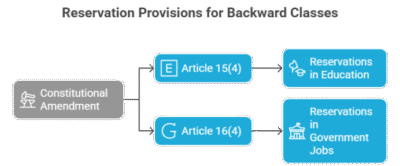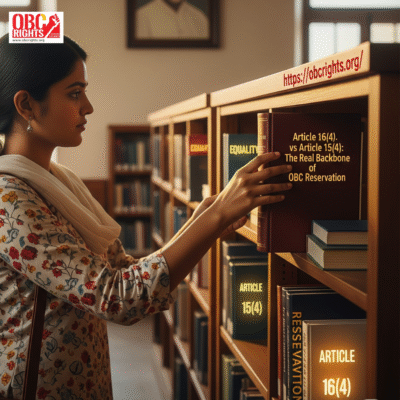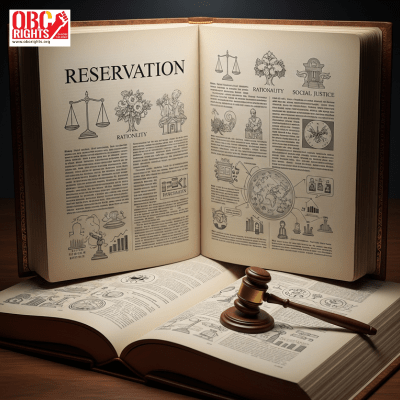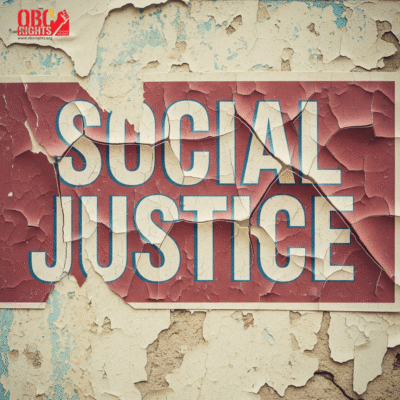When we talk about OBC reservation in India, we often hear these two terms: Article 15(4) and Article 16(4). They may sound technical, but they shape the lives of lakhs of students and job-seekers from backward communities.
But what do they really mean? How are they different? And why should you care?
Let’s understand what they mean, how they work, and why they matter even more today.
Where did it all begin?
Back in the early years of Independent India, the Constitution promised equality to all. But soon, it was clear that “equal treatment” wasn’t enough for communities that had been socially and educationally pushed back for generations.
When the Supreme Court struck down caste-based reservations in education in the Champakam Dorairajan case (1951), the government acted quickly. It brought in a major change—the First Constitutional Amendment.
- That’s when Article 15(4) and Article 16(4) were introduced.
- Article 15(4) allowed reservations for backward classes in education.
- Article 16(4) allowed reservations for backward classes in government jobs.

Why Two Separate Articles?
Because education and employment are two different fights.
- Many backward-class students were not even able to enter schools or colleges. So Article 15(4) opened the doors to education.
- But getting educated wasn’t enough. They also needed a fair chance at government jobs. That’s where Article 16(4) came in.
These two together became the foundation of the reservation system for OBCs.
What’s Happening Today?
You might think the reservation is settled law. But even today, there are big debates:
Creamy Layer Confusion
OBCs who are “socially advanced” (i.e., well-off) are left out of job reservations. This is called the creamy layer rule under Article 16(4).
But should the same rule apply to college admissions under 15(4)? Courts aren’t fully clear. Some say yes, others no. But in the ground, no Central University accepts an OBC Student without OBC – Certificate.
Private Colleges, No Private Jobs?
Article 15(5) was added in 2005 to allow OBC reservations in private colleges.
But there’s still no reservation in private jobs. Why? Shouldn’t Article 16 also be updated and applied?
Caste or Income?
Some people say reservations should be only for the poor, not based on caste. But the Constitution clearly talks about social and educational backwardness—not just income.
Why does this matter to you?
Whether you’re an OBC student, a parent, or just someone who believes in equality, you should know this:
- Articles 15(4) and 16(4) are not charity.
- They are the result of years of struggle, protests, and legal fights.
- They give lakhs of young people a fair chance to grow.
But if we don’t understand or protect them, they will be buried / eliminated—silently, legally, politically.
Final Thought
The fight for fairness doesn’t happen only in courts or politics — it happens in schools, job interviews, and everyday life, i.e., a deep understanding and awareness of our rights – the efforts, sufferings we underwent for decades.
So when someone asks, “Why do we still need reservation?” — ask them:
Would you call it a fair race if some people weren’t even allowed to stand at the starting line?
If we stay silent, these rights can slowly disappear.
Protecting them isn’t just about law — it’s about dignity, opportunity, and future.
Let’s not forget what was fought for — and why it still matters.
To get a thorough understanding or even an idea of the basis for reservation, please visit www.obcrights.org and the blogs uploaded on it.



